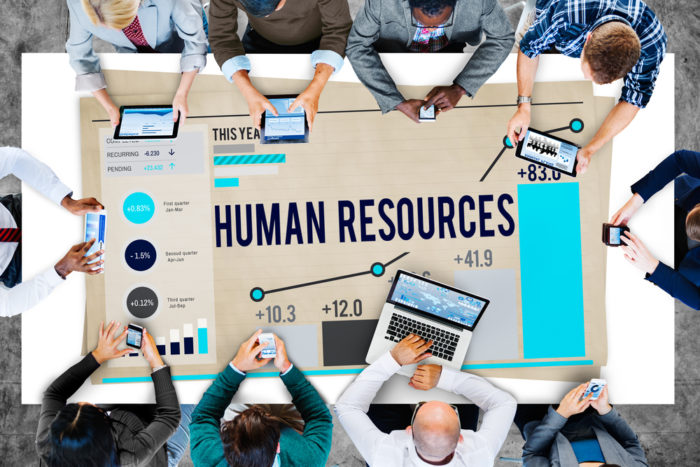
By TP Sharafudheen
Human resources capabilities play a strategic stakeholder role in business. From identifying potential business opportunities, diversified teams, well-functioning organizational structures to identifying long-term talent needs that will impact the future. More importantly, creating effective career paths for existing talent and creating room for opportunities in professional, financial, and personal growth.
The new age HR leadership along with the CXO’s are now facing unprecedented challenges for digital transformation of the system and people, particularly in technology companies.
Various studies indicate that half of an individual’s required digital skill-set for a particular role becomes obsolete in 2.5 years as the existing tools are continuously replaced by new versions or other similar products. This leads to a new condition of constantly training employees to upgrade their skills. There are many new compelling trends emerging in the field of human resources globally which will solve the issue of upskilling and reskilling of workforce in any industry. The global pandemic would most likely take this trend to another unusual track which we are not able to predict clearly at this moment.
Technology driven HR system demands complete digital transformation in the mindset of employees
The latest flow powered by the new implementation of technologies such as Digitization, Automation, Machine learning and Artificial Intelligence, the HR industry has brought powerful and data-driven applications with predictable return on investment (ROIs). It has changed the role of the HR department from mere administrative and compliance department to a more meaningful role of key decision and impact maker in policy making and strategizing.

The time-consuming laborious tasks of employee onboarding have become more efficient with Robotic Process Automation in the latest HR management software. Through this all repetitive jobs like maintaining records, the standard statutory reminders, documentation, adding employees in payroll systems, salary calculation, and pay slip generation etc. can be made quicker, accurate and hassle-free. This will also reduce a lot of manually generated flaws inside the organization.
Induction process and employee training programs have become digital with the online and offline e-learning programs and more adaptive towards the trainee according to their pace, style and preferences. These programs use interactive AI to assess the training efficiency and trainee’s engagement, AR/VR solutions and gamified L&D systems to ensure participation. Inline assessment, evaluation and monitoring is made super easy in this area against clear ROIs and goals.
Based on defined KRA and KPI data-driven decisions related to promotions, compensation, training, employee retention and agile vertical & horizontal cross-functional team staffing can be taken with the help of HR performance analytics. Sentiment analysis based on emotional data points generated through hundreds of interactions between managers and employees is also not unheard in today’s time. All this has become a system driven process rather than a person-oriented process.
With latest HR Tech softwares, companies are making way for more result-oriented goal setting, regular performance check-ins and social audited feedback. This kind of engagement and report generation with data analytics to back it, makes employees feel more deeply engaged and also helps retain them for a longer time while they keep upgrading themselves.
Forecasting employee demand and predicting attrition, searching for the right candidate, primary level filtering and screening, and hence conducting interviews can all be carried out at a few clicks with advanced AI enabled HR systems. This is an evident big time reality now.
The complete digitization of all information about the candidates, coupled with latest technologies like connected due diligence methods, Artificial Intelligence, Machine Learning, elastic and deep search etc. has opened new possibilities in background verification. Technology has enabled the creation of huge proprietary databases and deep digging powerful search engines to scrape large number of data-points to generate perfect results. Security and compliances are two important elements these technology tools have assured us.
In the traditional HR practices, the HR managers have no other way, but to rely on human judgement in understanding employees and their interests, dislikes, emotions, motivations, behavior and complexities. But the new-age system powered by Artificial Intelligence is now ready to enable the HR department to make completely data-driven conclusions in relation to the nuance of human emotions and psychology as well. This advancement is changing the ecosystem of the HR world and making it function in a way which was totally unthinkable a decade ago. It has taken the roles of learning and development, payroll management, onboarding, employee engagement or outsourced services like employee background screening, HRMS etc. These innovations have empowered the HR domain like never before in the history of the industries.
As per the latest study global human resource management (HRM) sector is projected to reach $30 billion by 2025. The McKinsey Institute estimates that by this same time the global economic impact of AI will be somewhere between $7 and $13 trillion which is clearly giving promises of employment of huge number of people even in the presence of robotic automation but only with augmented skill sets. With timely investment in people and right tech education, the HR function will be capable to move beyond the mundane to create business efficiency with optimal productivity. One thing is clear, a smart and successful HR leader of the future will have a cozy seat at the high table that they can use for a powerful dialogue on the promises of work, which is not defined to be linear but adaptive of the compelling needs of the new generation. The upcoming days of HR holds an amalgam of super imposed tech with human capabilities and it’s high time for HR leaders to embrace this future to build their own new world order.
